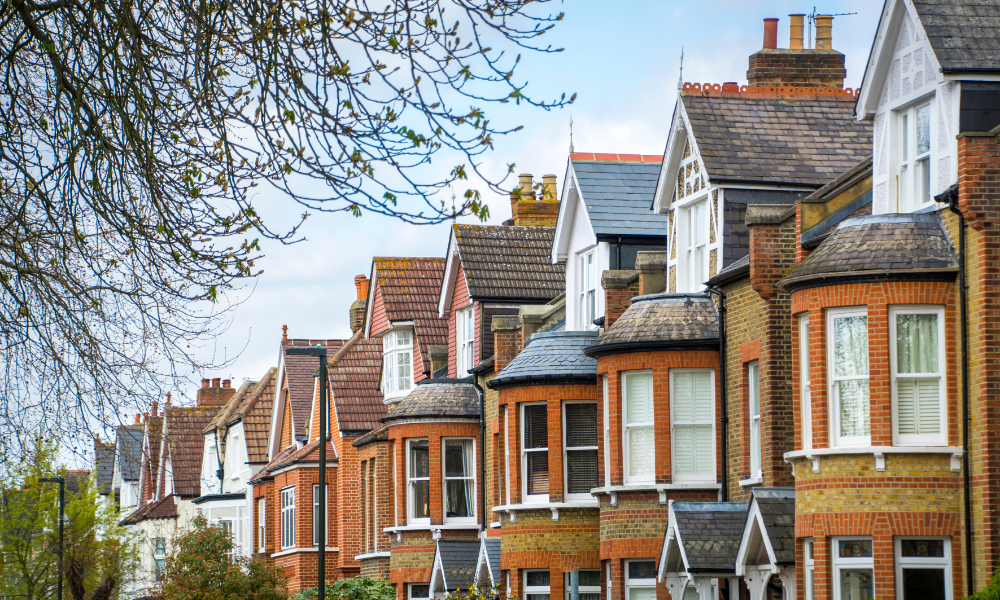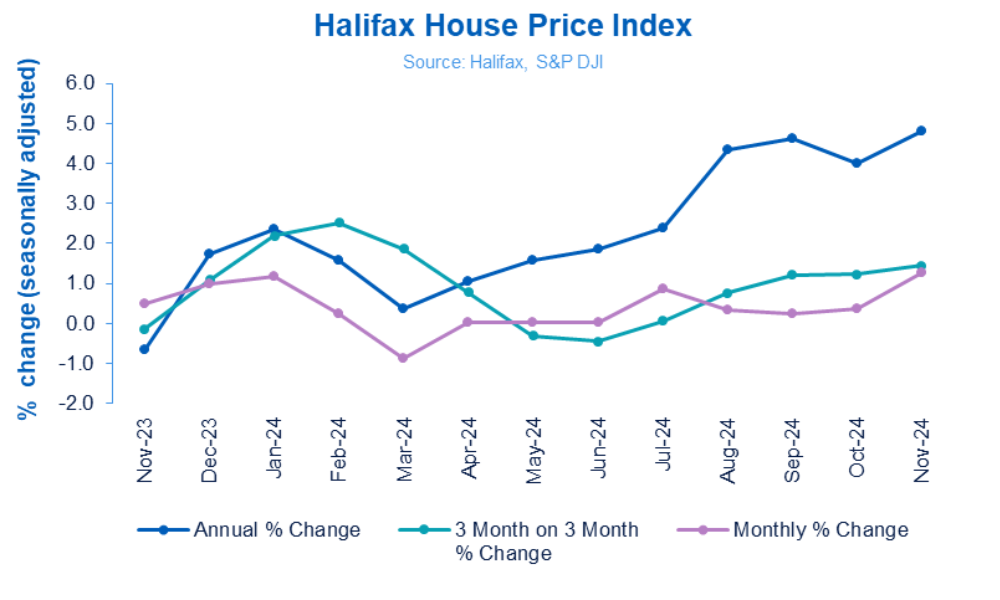Average property price hits new high as annual growth rises to 4.8%

UK house prices climbed for the fifth consecutive month in November, rising by 1.3% – the largest monthly increase this year. This pushed the annual growth rate to 4.8%, the highest since November 2022, according to the latest data from Halifax.
The average property price edged up to a record £298,083, surpassing the previous peak set in October.
 Northern Ireland led the UK with the strongest annual property price growth, up 6.8% to an average of £203,131. Wales also recorded robust growth, with average house prices rising 4.1% year-on-year to £225,084.
Northern Ireland led the UK with the strongest annual property price growth, up 6.8% to an average of £203,131. Wales also recorded robust growth, with average house prices rising 4.1% year-on-year to £225,084.
In England, the North West saw the sharpest annual increase, with prices climbing 5.9% to £237,045. The West Midlands followed closely, with property values rising 5.5% to an average of £257,982.
Scotland experienced more modest growth compared to the rest of the UK, with house prices increasing 2.8% annually to £208,957. Meanwhile, London retained its position as the most expensive region, with the average home costing £545,439 – up 3.5% compared to November 2022.
“Latest figures continue to show improving levels of demand for mortgages, as an easing in mortgage rates boost buyer confidence,” said Amanda Bryden, head of mortgages at Halifax. “However, despite these positive trends, many potential buyers and movers still face significant affordability challenges and buyer confidence may be tested against a changeable economic backdrop.”
However, with the Bank of England governor suggesting there may be four rate cuts next year, hard-pressed borrowers who are struggling with affordability could get much-needed relief, according to Mark Harris, chief executive of mortgage broker SPF Private Clients.
“The Bank of Mum and Dad continues to play a significant role in helping first-time buyers onto the housing ladder,” he said. “With precious little in the Budget to encourage them, and the stamp duty holiday coming to an end in March 2025, this is not going to get any easier. With swaps continuing to fall, the direction of travel of mortgage rates is downwards although it’s a slow, measured process.”
For Karen Noye, mortgage expert at wealth management firm Quilter, figures from the latest Halifax House Price Index suggest a cautiously optimistic outlook.
“Government policies aimed at supporting housebuilding and improving access for first-time buyers will be crucial if this recovery is to translate into long-term stability,” she said. “As we look ahead to 2025, much will depend on whether these early signs of recovery can be sustained in the face of ongoing economic uncertainty.”
According to Bryden, positive employment figures and anticipated decreases in interest rates are expected to continue supporting demand as we move towards the end of the year and into 2025.
“This should underpin further house price growth, albeit at a modest pace as borrowing costs remain above the average of a few years ago,” she added.
Any thoughts on the latest Halifax House Price Index? Share them with us by leaving a comment in the discussion box at the bottom of the page.



